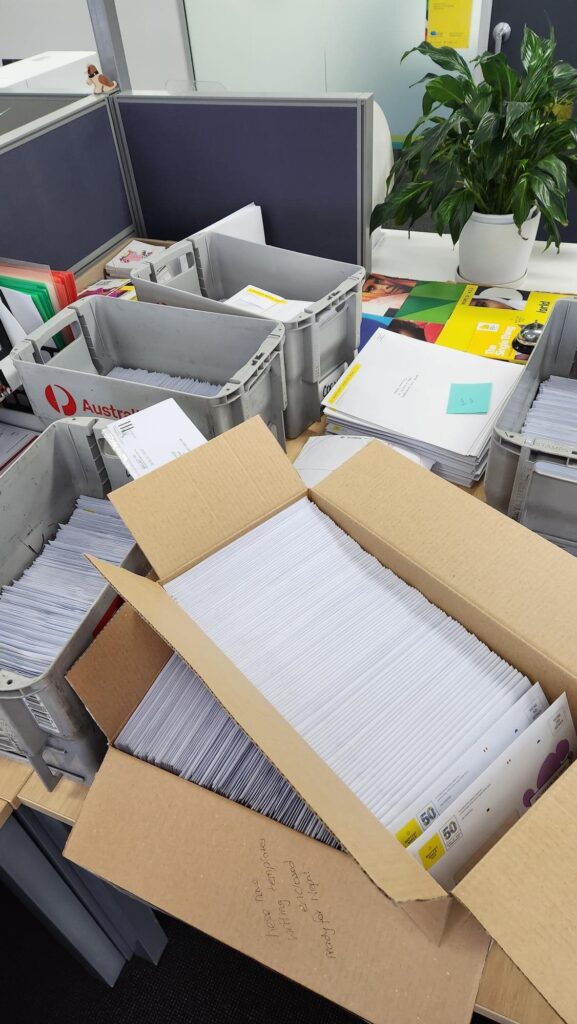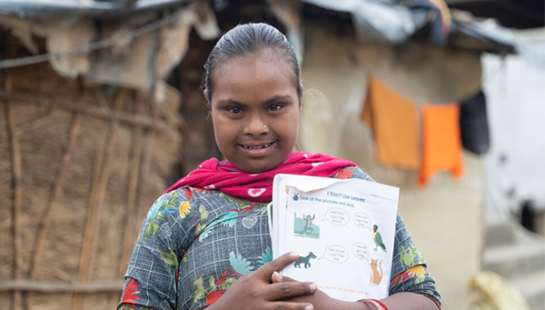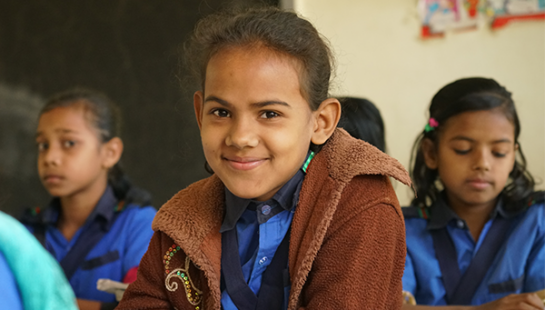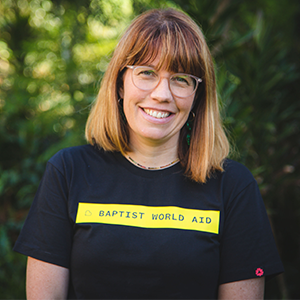Letter writing has long been a part of Baptist World Aid’s Child Sponsorship program—a way for Sponsors in Australia to connect with children and see life through their eyes.
For over four decades, Heather and Ray Martin have been reading and sorting thousands of letters that are exchanged each year. Here’s four things about letter writing that we can learn from their experience.
Letters Are A Small Glimpse Into A Child’s Life
Letters open up the everyday world of our Child Partners, and what life is like in their village.
‘Children talk about sports and games a lot, such as football, basketball and hopscotch, board games like Ludo,’ Ray said. ‘They also talk about going to the programs run by our Partners. That’s top of the pops for them!’
Heather adds: ‘They write things like, “I play with my friends; I like to sing and play games, I like to dance, I like to draw.” It’s the community that they love.’
Sometimes, the letters reflect more sobering realities. Heather recalls one child writing during the pandemic, ‘The child said, “I’m not allowed to play with anyone” and drew themselves sitting alone,’ she said. Letters reveal not just the joys, but the challenges children face.
Writing Letters Is Good For Everyone
The benefits of writing aren’t just about creating a connection. For children in our Partner’s Child Clubs, letter writing is an opportunity to improve their literacy and communication skills. ‘I like communicating with people in Australia,’ said Useni, a Child Partner in Malawi. ‘I have improved in letter writing and am learning to write business letters.’
For Sponsors, letter writing can be a mindful way to shift focus beyond our own lives. Over the time she’s been reading supporter letters, Heather has witnessed incredible faithfulness. ‘I’ve seen the same people faithfully write letters for many years, or churches faithfully sending letters to children,’ she said. ‘I think it’s worthwhile to write letters,’ Ray added. ‘It helps broaden the minds of the Australian Partner, and for the Child Partner, it opens another door and gives them something to think about.’
For children in our Partner’s Child Clubs, letter writing is an opportunity to improve their literacy and communication skills.
It Takes A Team To Send Letters
Behind every letter sent is a dedicated team working hard to ensure letters reach the right child safely and securely. At Baptist World Aid, five volunteers (including Ray and Heather) and around 20 translators check, translate, sort, and dispatch letters. Letters travel through several stops—sorted and mailed from Australia, processed through country head offices, translated and dispatched via field offices—before finally reaching the children. Technology is helping make this process more cost-effective, such as scanning and emailing children’s letters instead of mailing physical copies across the world.
Recently, the Baptist World Aid team processed and sent a whopping 1,800 letters in just two weeks—a mammoth effort that was truly a labor of joy!

You See That You Impact More Than A Child, Making A Difference To Whole Community
Heather and Ray have supported numerous Child Partners over the years, and Ray served as chairman of Baptist World Aid’s board in the 80s and 90s. During this time, they’ve seen a shift in Child Sponsorship from focusing solely on the child, to a more community-centered approach, and the extension of the age limit of children included in programs.
In their letters, children write proudly about the ways their parents and communities are fighting poverty.
‘They talk about when their parents go to savings groups. The kids understand what it is—that you put something in, borrow the money, and buy what you need. They’re proud that their mother can now carry tomatoes to market, buy clothing, and help with their business,’ Heather said. Children also celebrate improvements in their villages, such as cleaner environments, new toilets in homes, water wells close by, and the results of improved farming and husbandry techniques.
More than building a connection, letters show us the good that’s happening, and the flow-on effect that consistent support has on these communities.
To write a letter to the children you support, go to My Account.



 Heather Keith,
Heather Keith,

 Meredith Benson,
Meredith Benson,